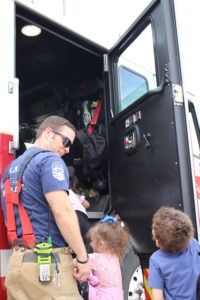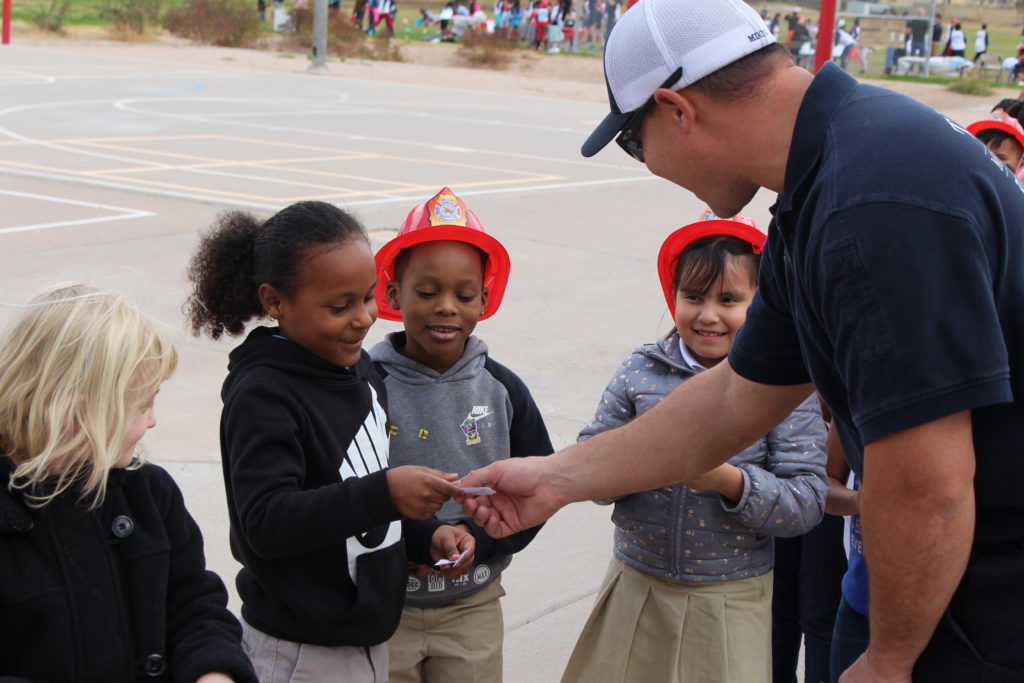
Story and Photos by Noah Kutz
Headlines across the nation read similarly: “They shared a bunk bed growing up. Both were killed by the police” or “Examining how police bullets shattered a Brooklyn family. Twice.”
These sobering words from national news sources serve as a reminder of the unfortunate divide between police officers in the U.S. and the people they vow to protect and serve.
Public opinion toward the police force varies per community, but for an ASU research professor, one thing remains apparent:
“In the past couple years, kids’ perceptions of law enforcement have really declined,” he says. “We know that relationships are strained, and we know time and again that every time kids see something in the news it decreases their perception of law enforcement.”
Adam Fine is a research professor of criminology in the ASU College of Public Service and community solutions. In recent years, Fine has conducted research focusing on juvenile delinquency and generalized views of law enforcement within select communities. Fine and his research team performed randomized controlled trials on elementary schools in the Compton neighborhoods in L.A., recognizing that schools that made an effort to bridge the gap between students and law enforcement eventually made a greater impact on those kids’ psychological perceptions of police officers and of themselves.
But how can a school truly connect its students to the law enforcement in their community? Introducing the Team Kids Challenge.
Team Kids is an organization devoted to improving communities across the U.S. by “empowering children to change the world,” according to Julie Hudash, founder and CEO of the nonprofit.
The team of volunteers partners with elementary schools across the U.S. and works as a platform for connecting students to the police officers and firefighters in their school districts.

Two Tempe schools, Arredondo and Aguilar Elementary, recently became recipients of this program, with officials noting that they already have seen immense change and results in each school’s student body.
The “challenge” is for the students to come up with a set of goals for improving their communities, and an action plan for affecting change.
Over the course of five weeks, kids have opportunities to meet with leadership teams from local businesses and law enforcement to build a plan for fundraising carnivals, in which
the funds go toward a charity of the students’ choice.
On week four the students host the carnival and raise as much money as possible; then, on week five, they meet with their leadership mentors for a debrief to see the impacts they’ve been able to make in their community.
All along the way, police officers and firefighters help the children meet their goals and help foster an image of protection and service for law enforcement as a whole.
“Every year they learn about social issues, and every year they’re learning that police and fire are the people who are there to protect them,” says Hudash. In a traditional execution of the Team Kids Challenge, the fifth graders are students who lead the events for younger kids, allowing them to become mentors themselves and giving the rest of the school something to look forward to when Team Kids returns each year.
In the past, schools have attempted to partner with law enforcement in their community, but were said to have fallen short of their goal of truly connecting with the students
and making an impact on their lives, according to Hudash.
Instead, the message was characterized as a repetitive and dull cycle of anti-drugs and anti-drinking.
Notes Hudash: “If you say ‘Alright, buddy, don’t do drugs,’ then you never think about the message you’re telling that child who says, ‘I wanted to tell you how I stopped someone from getting bullied on the playground, and all you see in me is someone who’s going to do drugs.’”
Team Kids, on the other hand, focuses on building a strong relationship between the children and law enforcement through meaningful discipleship, which eventually shapes their views of the community in an increasingly turbulent world.
Information: https://www.teamkids.org/who-we-are/mission-and-values

